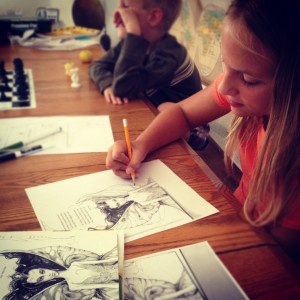
Is a child born with certain natural abilities at birth or is a child unconsciously nurtured by his parents to favor particular traits over others? From a 10,000 hours to talent perspective, the chicken-or-egg debate over this question is a moot point. Whatever small advantages a child is given or born with at birth, it will avail to nothing if those advantages are not actively nurtured. It is clear that early skills that are not developed and worked at, do in fact dissipate over time, at least to the point of not being of any advantage over someone else who later in life applies himself and learns the same skill from scratch. Yes, rejoice over any early skill your child has, but also work at it hard to increase its rewards.




























